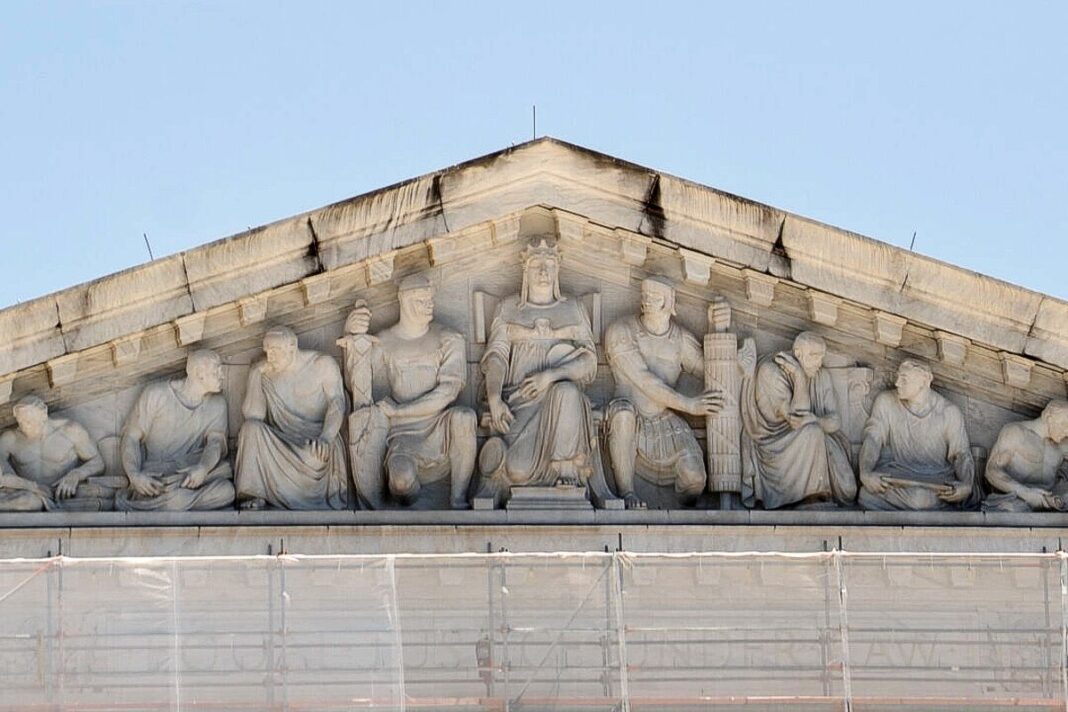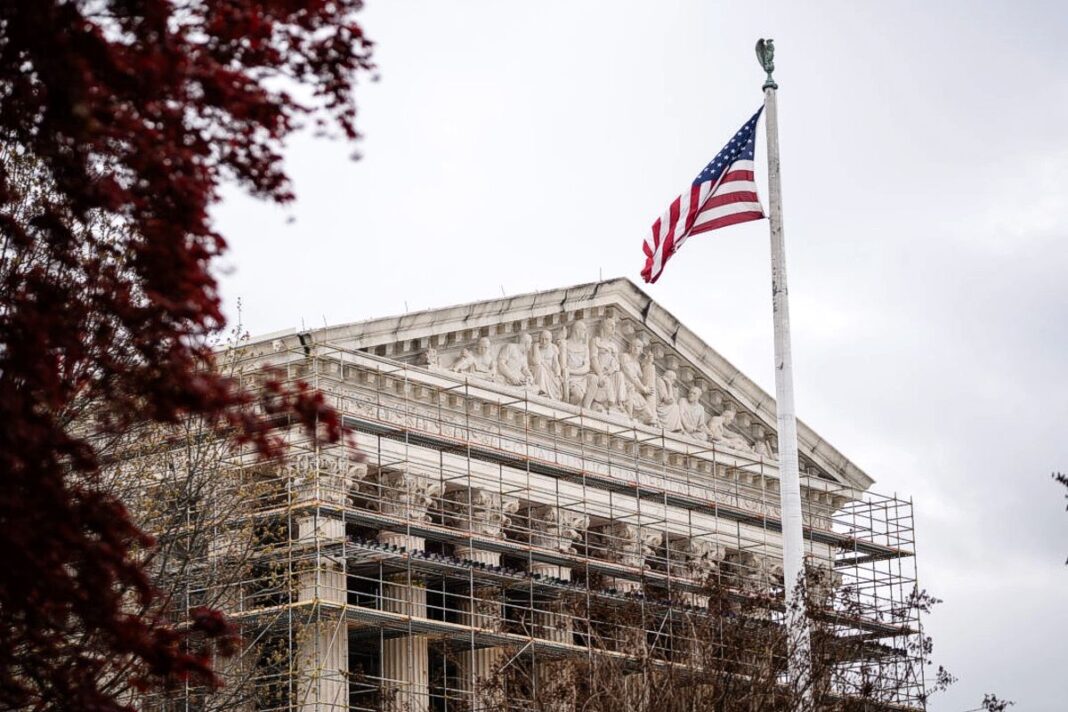States or nonprofits could still pursue broad relief through legal avenues such as class-action lawsuits.
The Supreme Court’s landmark decision on nationwide injunctions was a win for those who criticized the practice, which has been used to block the Trump administration’s policies since President Donald Trump returned to the White House. But, as some of the justices indicated, plaintiffs can still seek widespread blocks on the administration.
Republicans’ primary argument for ending nationwide injunctions was that they exceeded judges’ authority by providing relief for parties not involved in the lawsuit before the court. For example, two federal judges prevented Trump from limiting birthright citizenship for the children of pregnant women who hadn’t sued.
Entities like states or nonprofits challenging the president’s policies may still pursue broad relief through legal avenues such as class-action lawsuits, including for classes that reach across the nation. As Justice Brett Kavanaugh said in his concurring opinion, judges may still be able to issue the “functional equivalent of a universal injunction.”
The key to Justice Amy Coney Barrett’s majority opinion was that courts could block policies insofar as their orders provided “complete relief” to the individuals or organizations suing. For birthright citizenship and other issues, that can be complicated when entities like states are seeking relief. That’s because of how individuals can cross state lines after being in a state where Trump’s order is still in effect.
The decision left open the question of whether the president’s order restricting birthright citizenship accorded with the 14th Amendment of the Constitution. The court said the president’s restrictions would be delayed for 30 days after its decision.
Class-Action Lawsuits
During oral arguments in May, Justice Samuel Alito wondered whether eliminating nationwide injunctions would have any practical impact if judges granted blocks for classes that included people throughout the country. That question has already come up in Maryland, where one of the nationwide injunctions on Trump’s birthright citizenship order originated.
When judges certify or approve a class, they allow plaintiffs to represent large groups of people who may be impacted by a particular policy. In those cases, class certification allows judges to provide relief to affected people not directly before the court.
Hours after the Supreme Court’s decision on June 27, the plaintiffs in the birthright citizenship case filed a request to convert their suit to a class action. They asked the judge to certify a class of individuals that included children who would be precluded from receiving citizenship under the president’s order.
The American Civil Liberties Union and other groups on June 27 filed a similar class lawsuit in the District of New Hampshire on behalf of the proposed class of babies and parents who could be affected by the executive order.
In his concurring opinion, Alito was concerned that courts would use class certification as a “significant loophole” to the court’s decision. Referring to the section of federal law outlining the requirements for class certification, Alito said judges must scrupulously adhere to them.
“Otherwise, the universal injunction will return from the grave under the guise of ‘nationwide class relief,’ and today’s decision will be of little more than minor academic interest,” he said.
By Sam Dorman








